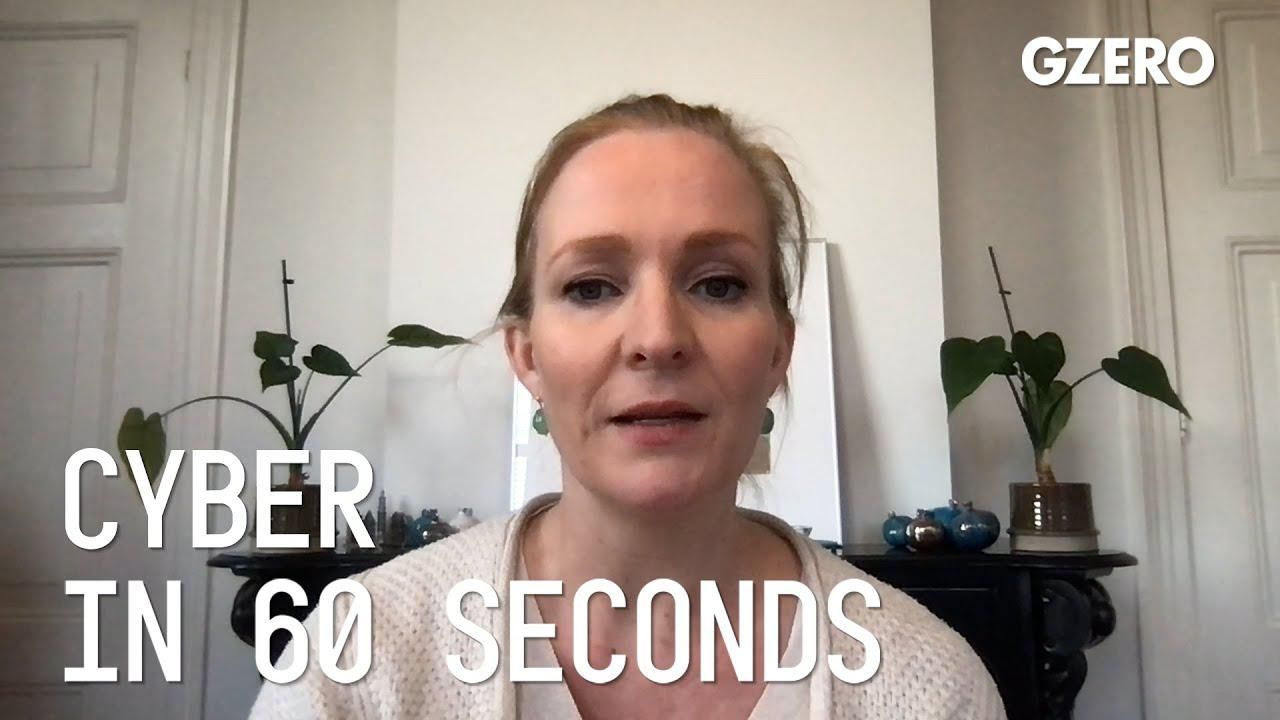Cyber in 60 Seconds
Limiting Putin's propaganda: Big tech & the Russia-Ukraine war

Outsized Power of Big Tech Revealed in Russia-Ukraine War | Cyber In :60 | GZERO Media

Marietje Schaake, International Policy Director at Stanford's Cyber Policy Center, Eurasia Group senior advisor and former MEP, discusses the Ukraine conflict from the cybersecurity perspective:
If you're like me, you've been glued to the news all week after Russia invaded Ukraine to understand what is happening on the ground and how the democratic community is responding. We've seen tectonic changes already in this past week, and we could say the same for Big Tech.
How is the Russia-Ukraine war testing the role of Big Tech?
Well, I do think we see their outsized power revealed once more. We saw Putin restricting access to platforms like Facebook, as he is losing grip over his propaganda narrative. But then also social media companies finally being forced to stop amplifying state propaganda channels of Russian media in the EU, due to new sanctions. But the fact that the platforms are not doing the same in the US and other jurisdictions says a lot about their reluctance. And there's also a problem with executing their own corporate policies. New research shows that Facebook fails in 91% of cases to correctly label content when it is Russian state sponsored. It's very messy.
What is social media's role in the Russia-Ukraine war?
Well, we've seen a lot of clips, and I've been quite impressed with how the Ukrainian side has seemed to be one step ahead each time. President Zelensky was addressing the world in response to rumors that he had actually fled the country, to show that none of that was true. And there are also clips of how captured Russian soldiers, often looking like teenagers, are fed while calling their mothers crying, and it paints a picture of how young boys are sent into the battlefield without a clue of what they were sent to do.
But having said all this, it's only been a week of this unjust war and a lot will still have to be researched more deeply. So we will keep you posted.
How widely is AI actually being used, and where is adoption falling behind? Speaking at the 2026 World Economic Forum in Davos, Brad Smith, Vice Chair and President of Microsoft, outlined how AI adoption can be measured through what he calls a “diffusion index.”
AI adoption is accelerating worldwide, but “diffusion” isn’t just about who has the best models. It’s about who has the basics: affordable power, reliable connectivity, and the skills to actually use AI. In a new GZERO Media Global Stage livestream from the 2026 World Economic Forum in Davos, Switzerland, CNN’s Richard Quest moderates a clear-eyed discussion on what it will take to broaden AI access, and what happens if the gap widens.
Now that we are all on same page. #PUPPETREGIME